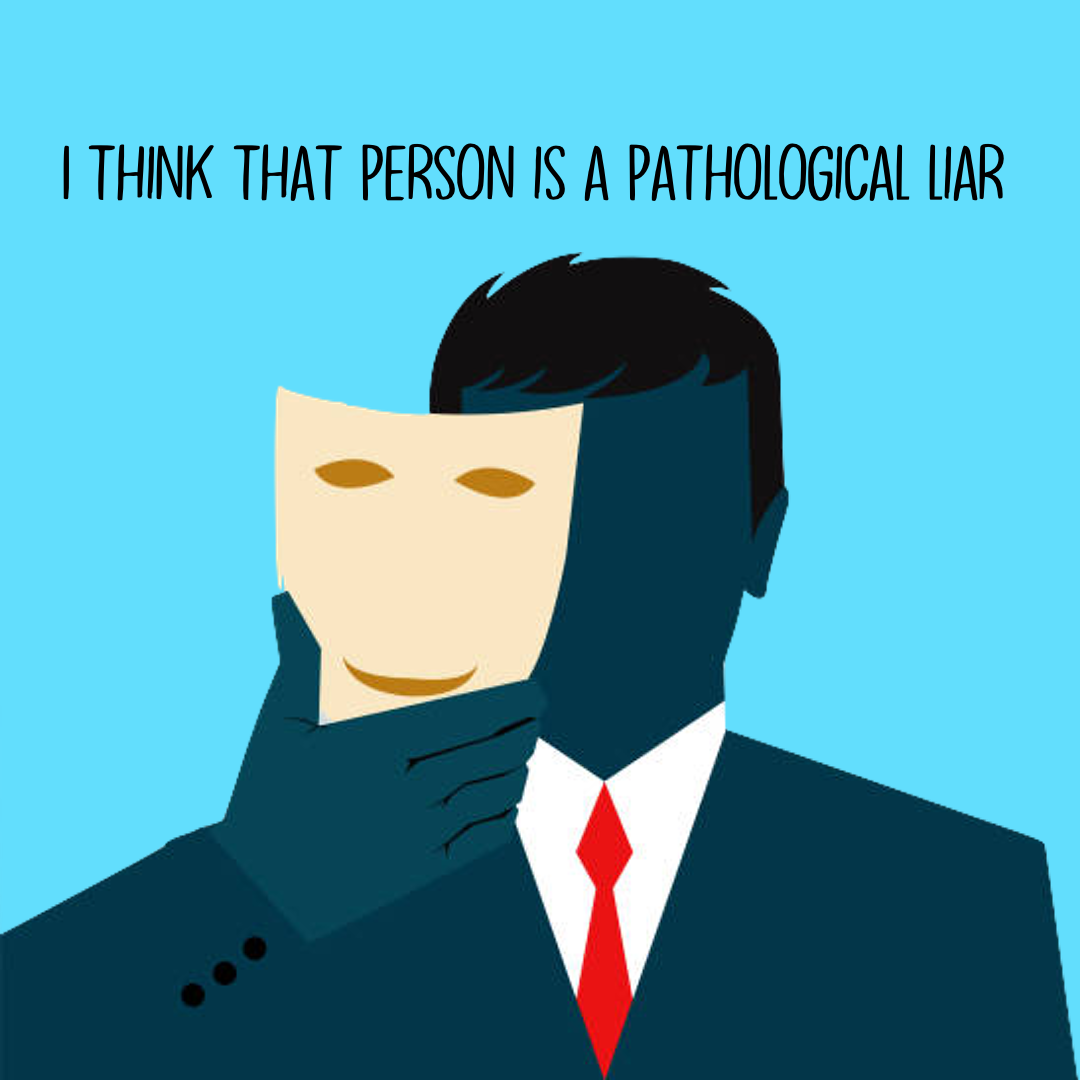Have you ever thought to yourself…”hmmm, I think that person is a pathological liar.”
Well, you might just be right.
Being lied to on a regular basis can be extremely frustrating and hurtful. Eventually, the lying will lead to disrespect and deception.
WHAT IS A PATHOLOGICAL LIAR?
There is a big difference between compulsive and pathological liars.
Pathological liars are actually addicted to lying. Many studies have shown that most of them lie because they seek attention.
They tell unbelievable stories, and often exaggerate. Sometimes, they might even paint themselves in the light of a victim to gain attention.
Studies show that people with low self-esteem are more likely to lie in a compulsive way in order to make themselves feel better about what they have in life and about their accomplishments.
WHAT IS PATHOLOGICAL LYING?
It is an addiction.
It is also known as compulsive, chronic or habitual lying.
Compulsive liars feel pleasure by lying.
Can pathological liars tell the truth?
Sure, but telling the truth is not half as much fun and can actually affect them with “withdrawal” symptoms, like with other addictions. Compulsive liars often find the truth almost physically uncomfortable for them and most pathological liars would even tell stories that are self-incriminating just to seek the attention.
When dealing with a pathological liar it is important to take note of the following:
It is important to establish a TRUTH BASELINE. This is what they do when hooking someone up to a lie detector test.
So, how is this done without the machine? For starters, you want to observe them and their behavior under relaxed or stress-free conditions to see if you can detect obvious deviations.
You could try to ask them a series of simple questions and observe how they behave when they have no reason to lie. Then pay attention to the changes in their behavior that may indicate that they are lying.
We will discover what the signs to look for are later on in the article.
Usually, it is pretty hard to spot a pathological liar, since they act in a very natural way when they are lying, yet, they still feel a little stressed.
How Do I Know If I’m Dealing With A Pathological Liar?
Pay attention to certain STRESS SIGNALS to see if you notice any gestures, such as, rubbing their hands together or fidgeting. If they have a forced or frozen smile and also, see if you can spot any unusual breaks in their gestures. Our first response to stress is to freeze. So if you notice an unusual break this is a definite sign of lying.
PAY CLOSE ATTENTION TO THEIR EYES. There is a very popular myth that says when a person tells a lie, they cannot look you in the eyes. This may be true for some inexperienced liars however, studies show that pathological liars actually give too much eye contact, since they are trying very hard to convince you. The most accurate eye signals that indicate a liar is their pupils dilate when they tell a lie and their blink rate is slowing down when they construct and tell a lien and then it speeds up.
A compulsive liar tends to lie so much that, over time, their lies will begin to CONTRADICT.
Compare stories with mutual friends and the person you are suspecting of being a pathological liar. See if you notice that certain details have changed. Also, when asked something, most liars will avoid the truth by answering questions by using quasi-denials.
Experts say basic VOCAL PITCH rises under stress conditions because vocal chords constrict.
Carol Kinsey Gorman says that “Under stress, people may also experience an increased need to drink water and to lick or moisten their lips, as the autonomic nervous system downloads a rush of adrenaline, causing dry mouth.”
The Four Telltale Actions Of A Pathological Liar
There are FOUR TELLTALE actions (David DeSteno, a researcher at Northwestern University), gestures or movements that can indicate if someone is feeling a certain way or hiding something. A lot of studies have shown that a specific cluster of nonverbal signals have been proven statistically to accompany dishonesty.
- HAND TOUCHING
- FACE TOUCHING
- CROSSED ARMS
- LEANING AWAY
It is not easy to spot a pathological liar, I would trust your instinct and make note of the above.



